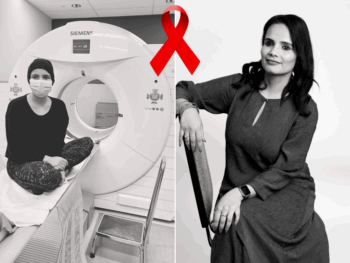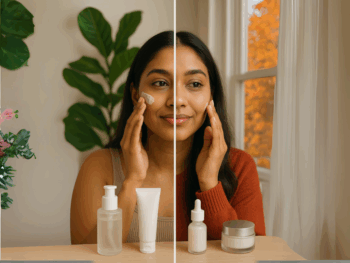
Bad Breath Tests, Causes and Cures
Halitosis, better known as bad breath, is a common occurrence in the mouths of many individuals – and it’s an embarrassing one at that. Food, poor oral hygiene, some medications and other factors contribute to our mouth’s unpleasant odour. Follow these simple answers for keeping your breath fresh and your mints at bay.
I can’t smell my own breath so what should I look out for?
There are several ways to determine how fresh your mouth actually is. When chronic bad breath occurs, it might go unnoticed by the nose, since our noses get accustomed to our own odour over time. A constant bad taste in your mouth or foods tasting “off ” can signify stale breath. Another symptom of halitosis is a dry mouth due to a lack of saliva, caused by illness or certain medications. Also watch out for a slight coating on the tongue, which is also a symptom.
Aside from garlic, what other offenders should I watch out for?
Since in most cases, bad breath originates in the mouth, anything we eat is reflected through the smell of our breath. After we eat, bacteria and plaque move in and allow for bad breath to take over. We all know eating garlic on a date is forbidden since it creates an awful odour in our mouth. Both garlic and onions are known to release sulphur compounds that react in the mouth, causing bad breath. The oils in these foods are carried through the bloodstream to the lungs and give off an odour until they are eliminated from the body. Watch out for other foods like eggs, cheese and dairy, as well as fish and foods that are rich in fat like most meat.
Besides just food, what could be could be triggering my halitosis?
Halitosis can also be caused by certain illnesses and poor oral hygiene habits. Gum disease is a major contributor to bad breath and responsible for creating bacteria. When your gums become inflamed, they create pockets around the teeth where food and bacteria can live, causing a stale odour in the mouth.
Anorexia nervosa also has the same effect due to the lack of proper nutrients given to the body. When you’re not eating, your liver breaks down fats and proteins, causing a condition called ketoacidosis, resulting in fruity- or stale-smelling breath.
Diabetes and liver and kidney diseases also trigger halitosis, so your bad breath may uncover an illness that you never knew you had.
Certain medications that are used to treat specific diseases are also offenders. Antihistamines and some decongestants tend to dry out the mouth by decreasing saliva flow and, in turn, causing halitosis. Lastly, poor oral hygiene — including not flossing on a daily basis or not making regular cleaning visits to your dentist (usually every six months) — contribute greatly to the overall health of your mouth.
How can I tell if my breath is fresh?
The simple trick of licking the back of your hand and waiting for it to dry, then smelling it is an age-old test of bad breath. But there’s probably a better way to find out if you’re an offender. Use the key symptoms to find out if you have bad breath instead of licking your hand in public. A simple way to tell if you have halitosis is to breathe into a small plastic bag and fill it up with air. Keep the bag closed for a few minutes and then open it to smell the air that you blew in. If it smells, you know you have bad breath. Another way is to run a piece of floss through your teeth then smell it to see if it reveals any unpleasant odours. Researchers also suggest the spoon method. Run the end of a spoon down the back of your tongue to the front and wait a few minutes for the saliva to dry. If the odour on the spoon isn’t pleasing, that means your breath isn’t either. If you’re still unsure, the best remedy is to just ask! Ask a close co-worker, a friend or a family member to kindly smell your breath. Even though it is the more embarrassing way to diagnose bad breath, it will be the most accurate.
A co-worker of mine has bad breath. How do I mention it without offending him?
Telling people they have bad breath can be embarrassing for both parties. Since it is a touchy subject, be as tactful as possible so you don’t embarrass anyone. If you’re not comfortable telling them they have unpleasant breath, simply offer them gum or a mint and that will surely tell them what you are trying to say without being vocal. If you are closer with a person, you can politely tell them they need a piece of gum and they will figure out what you are trying to say.
Now that I’ve figured out I have halitosis, how can I treat it?
If the cause of your bad breath is due to an oral infection or disease, your dentist can give you a prescription toothpaste. If your halitosis is caused by diet or other factors, treatments can be followed.
- Brush your teeth after every meal or twice daily to keep bacteria from food at a minimum.
- Flossing once or twice a day is key to keeping plaque and other bacteria from forming on your teeth.
- Replacing your toothbrush every three to six months prevents bacteria from being spread from your toothbrush to your teeth every time you brush.
- Keep your mouth moist by chewing sugarless gum to keep producing saliva and also by drinking plenty of water throughout the day.
- For a quick fix, rinse with mouthwash or eat raw carrots, celery or parsley. The particles in these vegetables will help neutralize your breath and make it smell fresh.
BY PAULA CILIA / PUBLISHED IN THE FASHION, STYLE & HOLIDAY ISSUE, OCTOBER 2011
COMMENTS
YOU MAY ALSO LIKE
Newsletter Sign Up
Subscribe to our FREE newsletter for all of the latest news, articles, and videos delivered directly to your inbox each day!

















































































































